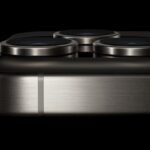Key Takeaways:
- Long-Term Wearability: Understand how smartwatches impact comfort and skin health over time.
- Telemedicine Integration: Discover the growing role of smartwatches in remote health care and consultations.
- Elderly Care: Learn how smartwatches assist in monitoring and supporting elderly individuals.
- Ethical Data Collection: Explore the ethical challenges of data collection by smartwatches.
- Modular Designs: Get excited about the future of customizable and upgradeable smartwatches.
Smartwatches are evolving rapidly, but their impact extends beyond just trendy features and sleek designs. From ensuring comfort during long-term wear to enhancing telemedicine, smartwatches are becoming integral to various aspects of our lives. Let’s dive into how these devices are shaping our future, the ethical considerations they bring, and the exciting innovations on the horizon.
Long-Term Wearability of Smartwatches
As you consider a smartwatch, you might wonder about its long-term wearability. Here’s what you need to know about wearing a smartwatch over extended periods.
Comfort and Skin Health
- Comfort Issues: Over time, wearing a smartwatch can sometimes cause discomfort. The band might feel tight, or the watch might feel bulky. It’s crucial to choose a watch with adjustable bands and a comfortable fit to minimize issues.
- Skin Reactions: Prolonged contact with the smartwatch can lead to skin issues like rashes or irritation. This is often due to sweat, moisture, or the material of the band. Opt for hypoallergenic materials and make sure to keep the watch clean.
User Satisfaction
- Adaptation: Most users adapt to the smartwatch over time, finding it a helpful tool for daily activities. However, issues such as battery life or device performance can affect satisfaction. Regular updates and maintenance can enhance the experience.
- Wear and Tear: Smartwatches can experience wear and tear. Ensuring you invest in a durable model with a good warranty can help mitigate these concerns.
Smartwatch Use in Telemedicine: A Growing Trend
Telemedicine has seen a surge in popularity, and smartwatches are playing a significant role in this transformation. Here’s how these devices are enhancing remote healthcare.
Remote Consultations
- Convenience: Smartwatches can facilitate remote consultations by providing healthcare professionals with real-time data. This means you can have your health monitored without needing to visit the clinic.
- Health Monitoring: Continuous monitoring of vital signs like heart rate and blood pressure enables doctors to provide more personalized and timely care.
Patient Data Sharing
- Data Accuracy: Smartwatches collect detailed health data, which can be shared with healthcare providers. This data helps in accurate diagnosis and ongoing health management.
- Privacy: While data sharing improves care, it’s essential to ensure that your data is protected and shared securely.
The Role of Smartwatches in Elderly Care
Smartwatches are becoming increasingly valuable in caring for the elderly. Here’s how they can assist in this important area.
Fall Detection and Emergency Alerts
- Automatic Alerts: Many smartwatches now come with fall detection features that automatically alert emergency contacts if a fall is detected. This can be life-saving for elderly individuals living alone.
- Emergency Call Functions: Some smartwatches allow users to make emergency calls with just a button press, providing a quick way to get help in critical situations.
Medication Reminders
- Medication Tracking: Smartwatches can be programmed to send reminders for medication, ensuring that seniors take their medicines on time.
- Health Monitoring: In addition to reminders, these devices can track vital signs and alert caregivers if there are any irregularities.
Ethical Considerations in Smartwatch Data Collection
The data collected by smartwatches is incredibly valuable, but it raises significant ethical concerns.
Privacy and Consent
- User Consent: It’s crucial for users to give informed consent before their data is collected. Companies should be transparent about what data is collected and how it’s used.
- Data Security: Protecting user data from unauthorized access is vital. Companies must implement robust security measures to safeguard personal information.
Data Usage
- Purpose of Data: The data collected should be used ethically and only for the purposes agreed upon by the user. Misuse or excessive sharing of data can lead to privacy violations.
- Regulations: Adherence to data protection regulations like GDPR ensures that users’ rights are respected and their data is handled responsibly.
The Future of Modular Smartwatches
Modular smartwatches are an exciting innovation that allows users to customize and upgrade their devices. Here’s what you need to know about this emerging trend.
Customizable Components
- Swappable Parts: Future smartwatches may offer modular designs where you can swap out components like batteries, sensors, or even straps. This allows for easy upgrades and personal customization.
- Longevity: Modular smartwatches could extend the lifespan of your device by allowing you to replace or upgrade parts instead of buying a new watch.
User Benefits
- Personalization: Modular designs enable users to personalize their smartwatch to fit their needs and preferences better. You can choose features that are most important to you.
- Sustainability: By reducing the need to replace the entire smartwatch, modular designs can contribute to more sustainable technology practices.
Conclusion
Smartwatches are more than just trendy gadgets; they are shaping the future of personal health, care, and technology. From addressing long-term wearability issues to enhancing telemedicine and elderly care, these devices are proving their value in multiple domains. As smartwatches continue to evolve, they promise to offer even greater customization and address ethical concerns, ensuring they remain a valuable part of our lives. Embrace these innovations and consider how they might improve your daily routine and overall well-being.














